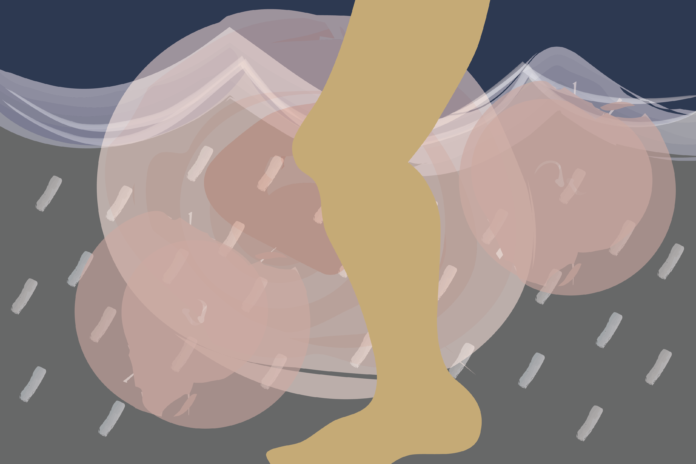A deep dive into barometric pressure and the human body
By ALEX MOTAWI — almotawi@ucdavis.edu
The human body is capable of many amazing things. Take a moment to think about it: The successful creation of the human body, with so many different moving pieces working together perfectly in union, is a miracle in itself. With new developments constantly hitting the forefront, our understanding of the human body has never been better. With many scientific advances, have we finally found the answer to one of those age-old “myths” about humans — that the human body can predict the weather?
Everyone has heard the stories. People who “always” get a migraine slightly before the storm hits their front door. The choice individual who “always” gets an ache in their pinky toe the day before their windows get pelted with rain. We used to file these myths and legends with other old adages that have never been tested or proven. These theories were considered folklore, like using persimmons to predict the weather by examining the shapes inside their seeds. The persimmon theory is based on really interesting research and worth exploring but ultimately false; not all secrets in nature have a true known purpose. However, as science continues to advance, we can truly analyze these stories that were often considered unbecoming. The results made the rest of us look silly. While not applicable to everyone, it is true that certain individuals do have the “power” to predict the weather through their aches and pains, and it all boils down to barometric pressure.
Time for a quick crash course in barometric pressure for the people like me who aren’t scientific geniuses. If we were scientists, I could probably just show you the formula (which contains 10 letters and zero numbers) and everyone would understand, but instead, I’ll take the word approach. Barometric pressure, also called atmospheric pressure, is a measure of air pressure in the atmosphere. It’s highly variable and while not relevant to this discussion, Davis is typically just above 30 inHg (inches of mercury), which is slightly above average.
As barometric pressure measures how much pressure is exerted on the air, it is a quality weather predictor when used in conjunction with previous data. It works consistently as a predictor of inclement weather in the U.S. In most regions of the U.S., low barometric pressure will mean that air in the atmosphere is rising; therefore, the air is cooling, eventually enough to form clouds followed by possible rain due to the increased humidity. Something to note is that in some more tropical climates, barometric pressure doesn’t work as well as an indicator, but otherwise, it’s a pretty solid method of weather prediction.
Most humans are unable to feel changes in barometric pressure, but not all. If a person is capable of feeling changes in barometric pressure, it’s a very short jump to theorize that they could then apply the knowledge to predict rain, even if it’s done subconsciously at first, which science supports. It’s one of the closest things we have to having superpowers. However, having superpowers is never easy. The people best able to sense changes in barometric pressure are people with arthritis. In the most comprehensive study we have so far (205 patients), it was confirmed that a lowering of barometric pressure (and therefore ambient temperature) increased pain for a significant amount of people suffering from knee osteoarthritis. It makes sense that someone suffering from arthritis would be able to predict some weather patterns based on aches and pains in their more susceptible joints.
The human body being able to predict the weather is not a myth. While I sincerely hope people are not subjected to the storm of factors leading to this ability, the fact that it exists is truly exceptional. We are discovering more marvels that our body is capable of all the time, thanks to science!
Written by: Alex Motawi — almotawi@ucdavis.edu
Disclaimer: The views and opinions expressed by individual columnists belong to the columnists alone and do not necessarily indicate the views and opinions held by The California Aggie.



